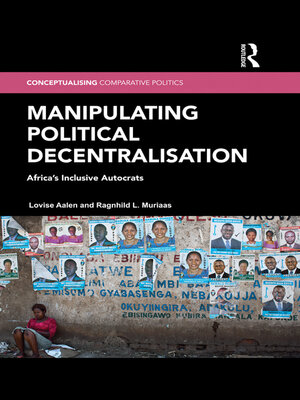Manipulating Political Decentralisation
ebook ∣ Africa's Inclusive Autocrats · Conceptualising Comparative Politics
By Lovise Aalen

Sign up to save your library
With an OverDrive account, you can save your favorite libraries for at-a-glance information about availability. Find out more about OverDrive accounts.
Find this title in Libby, the library reading app by OverDrive.



Search for a digital library with this title
Title found at these libraries:
| Library Name | Distance |
|---|---|
| Loading... |
Can autocrats establish representative subnational governments? And which strategies of manipulation are available if they would like to reduce the uncertainty caused by introducing political decentralisation? In the wake of local government reforms, several states across the world have introduced legislation that provides for subnational elections. This does not mean that representative subnational governments in these countries are all of a certain standard. Political decentralisation should not be confused with democratisation, as the process is likely to be manipulated in ways that do not produce meaningful avenues for political participation and contestation locally.
Using examples from Africa, Lovise Aalen and Ragnhild L. Muriaas propose five requirements for representative subnational governments and four strategies that national governments might use to manipulate the outcome of political decentralisation. The case studies of Ethiopia, Malawi, South Africa, and Uganda illustrate why autocrats sometimes are more open to competition at the subnational level than democrats.
Manipulating Political Decentralisation provides a new conceptual tool to assess representative subnational governments' quality, aiding us in building theories on the consequences of political decentralisation on democratisation.







